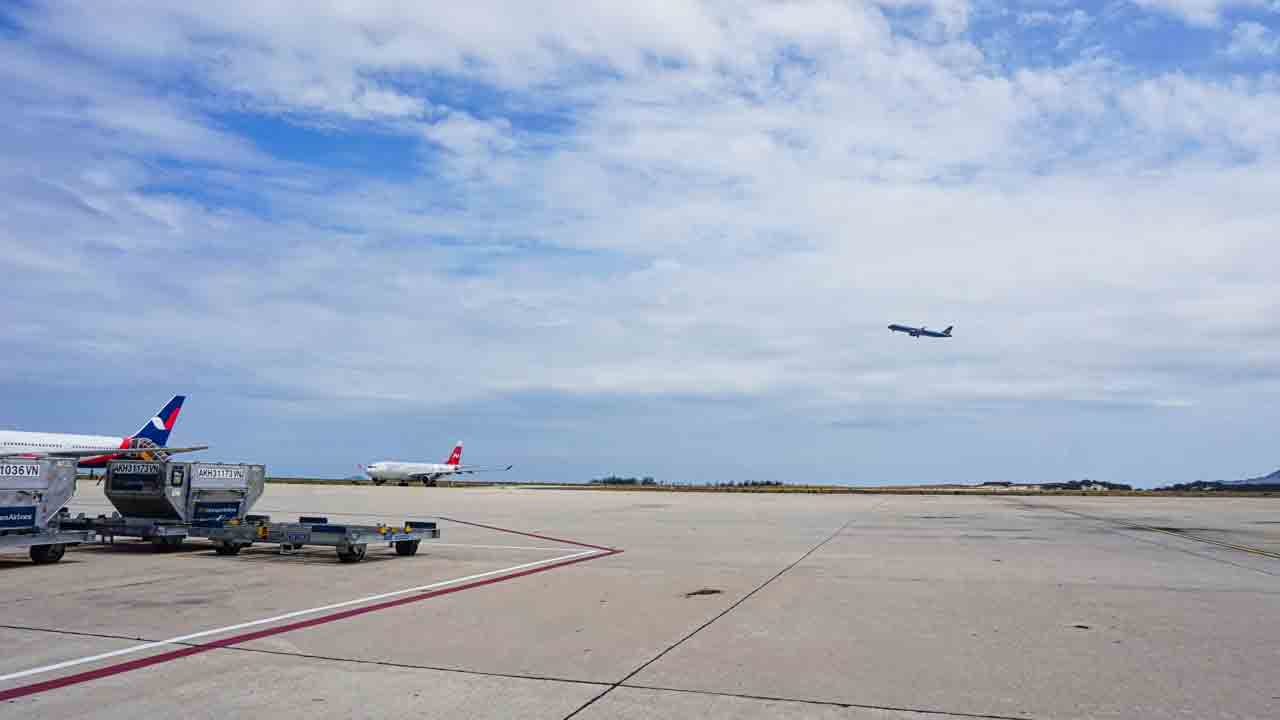HCMC – Vietnam will join the carbon offsetting and reduction scheme for international aviation (CORSIA) from January 1, 2026, marking a key step toward greener aviation but also posing financial challenges for local airlines.
The Civil Aviation Authority of Vietnam (CAAV) announced on June 30 that the International Civil Aviation Organization (ICAO) has confirmed Vietnam’s participation in the voluntary phase of CORSIA, a global initiative aimed at carbon-neutral growth in international aviation.
Launched by ICAO in 2016, CORSIA requires participating countries to monitor, report, and offset carbon emissions from international flights through the purchase of carbon credits, reported the Government news website (baochinhphu.vn).
To prepare for this transition, the CAAV has implemented a monitoring, reporting, and verification (MRV) system for emissions, submitted annual emission data to ICAO for 2019–2024, and issued regulatory guidelines on aviation fuel consumption and carbon dioxide emissions. The CCAV has also held consultations with stakeholders and reviewed relevant policies from ICAO and the European Union to align with global sustainability standards.
CORSIA is divided into three implementation phases. The initial pilot phase ran from 2021 to 2023, followed by the ongoing Phase 1 from 2024 to 2026. These phases are voluntary.
Phase 2, which spans 2027 to 2035, will be mandatory for countries whose international aviation activities exceed 0.5% of global revenue ton-kilometers, based on 2018 levels. Exemptions apply to least-developed countries, small island developing states, and landlocked developing nations unless they choose to opt in.
Vietnam’s decision to join in 2026 demonstrates its commitment to international climate action and positions its aviation sector to better meet the environmental standards of major markets, particularly in Europe. However, the CAAV warned that domestic airlines will face substantial costs. Estimated expenses for carbon credit purchases during the voluntary phase could range from US$13 million to US$92 million, depending on market prices, which currently vary between US$6 and US$40 per credit. This comes at a time when many Vietnamese carriers are still recovering from the aftermath of the Covid-19 pandemic and operating in a highly competitive market.
The ICAO Assembly, in its 41st session in 2022, encouraged member states to voluntarily participate in the early stages of CORSIA to contribute to global climate mitigation efforts. In line with this, the CAAV said that it will continue working closely with airlines and government agencies to develop policy recommendations and explore technical and financial support mechanisms to ensure the aviation sector can adapt effectively to the new regulatory framework.









